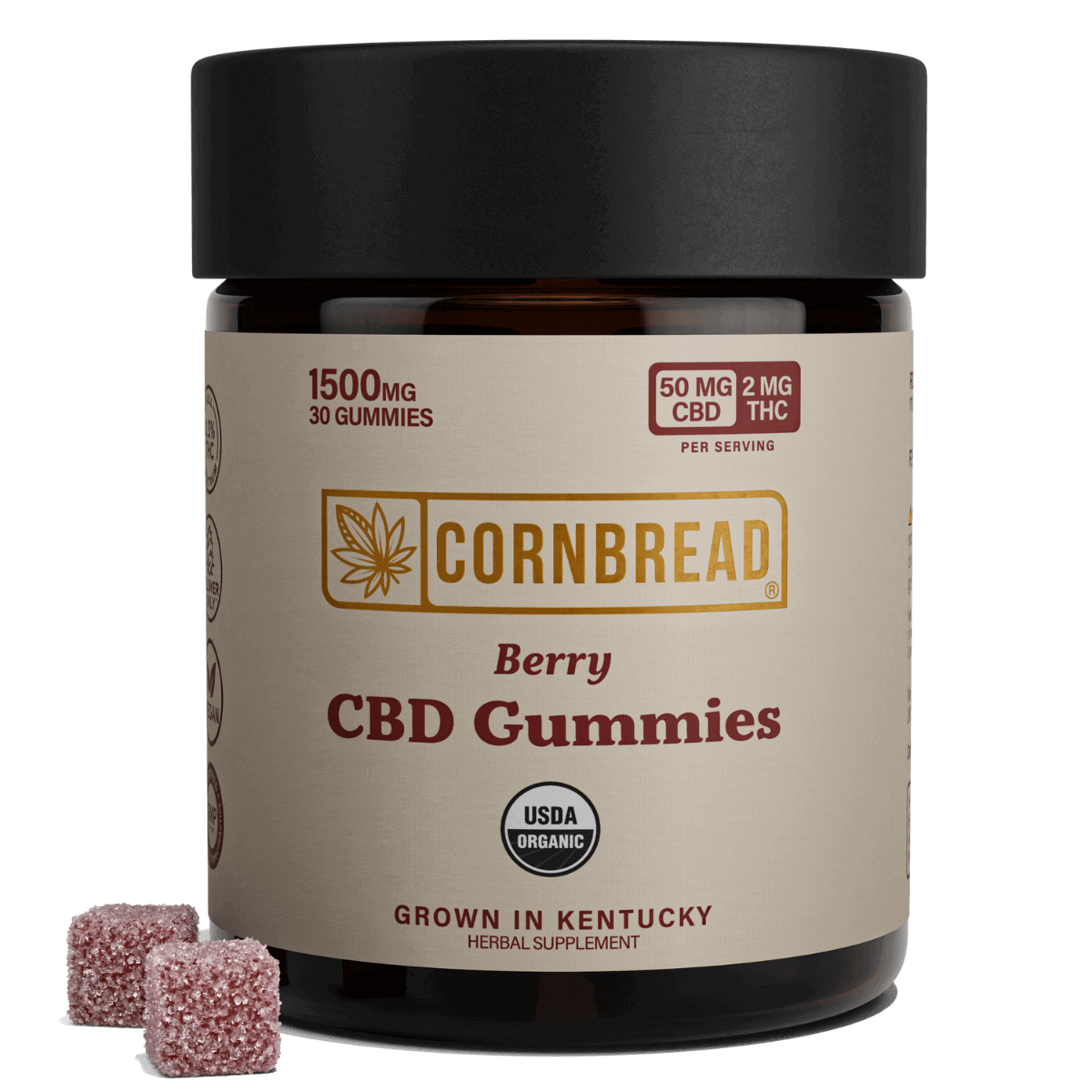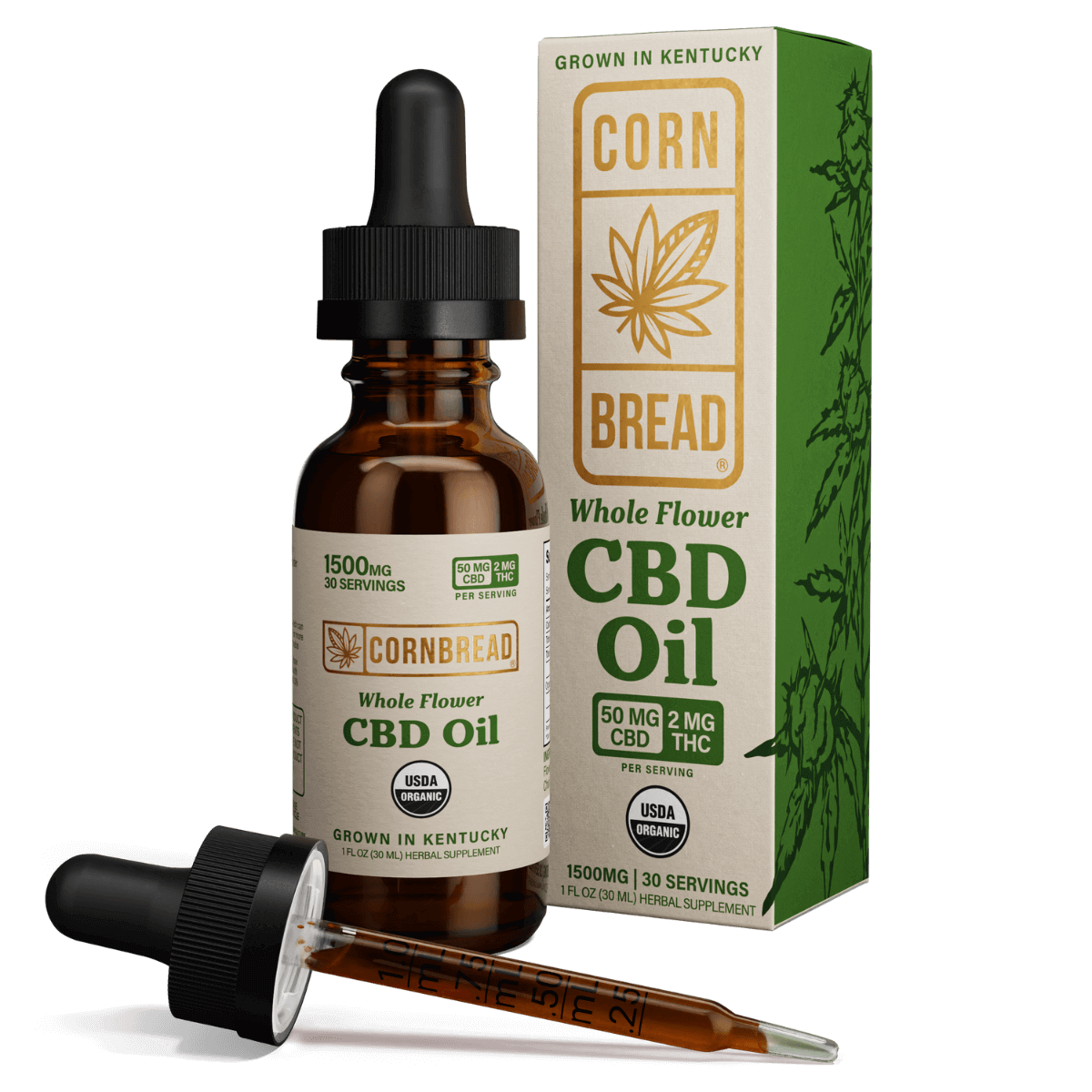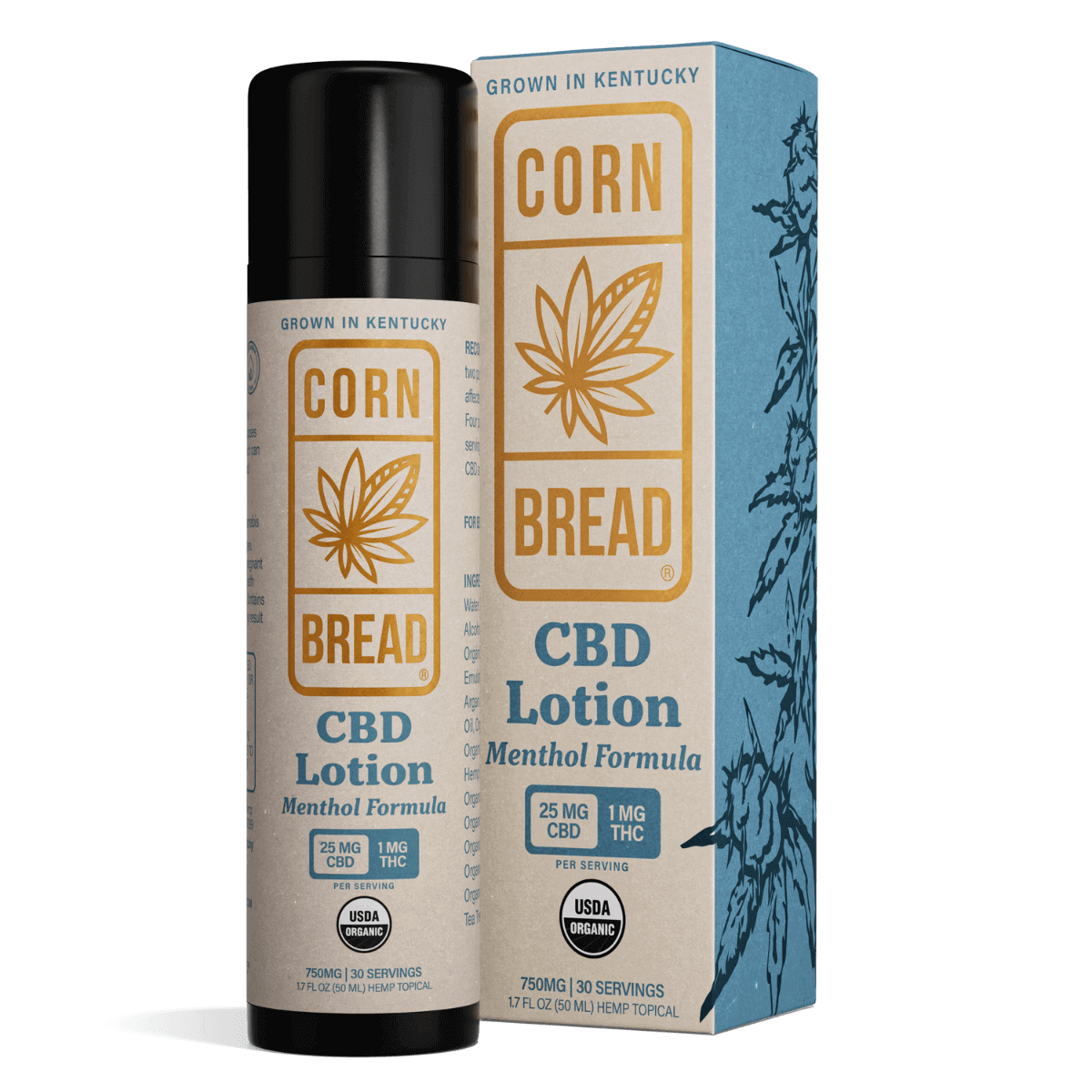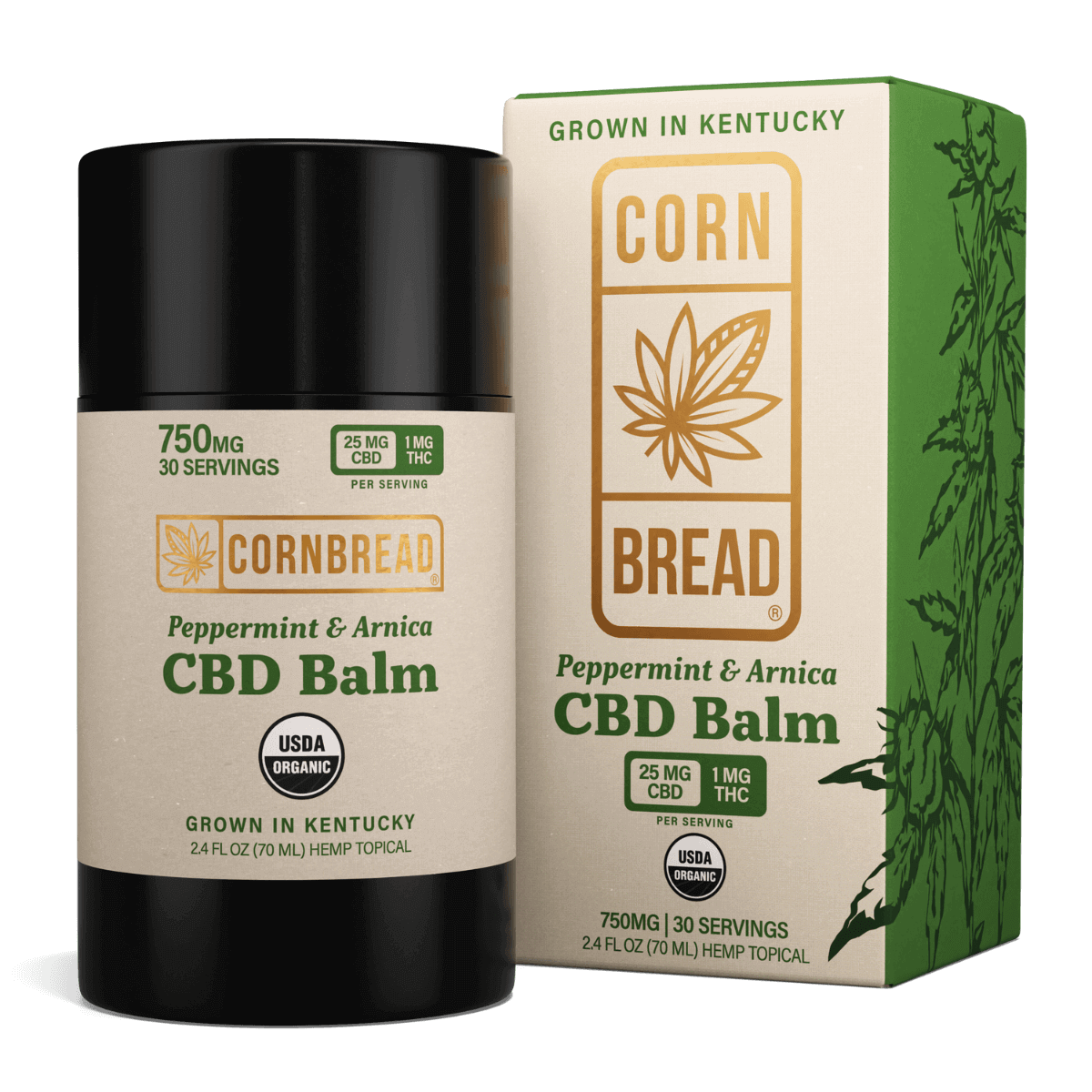Table of Contents
Introduction
Updated: September 10, 2021
All of us are at different stages of understanding the benefits CBD may have, but those at the beginning may still have questions like, "what is CBD?"
Science has only recently uncovered the potential properties of the non-intoxicating compound cannabidiol, or CBD. The discovery of the endocannabinoid system, and the effects of CBD and THC from the cannabis sativa plant, are changing how we approach self care.
The Agricultural Improvement Act of 2018 allowed hemp with trace amounts of THC to be grown nationwide.1 Hundreds of CBD companies are now flooding the market with hemp-derived CBD products, and you can find CBD anywhere from grocery stores to coffee shops. With CBD hemp products in the news and in stores everywhere, curious consumers often wonder what CBD may be able to do for them. We are here to help!
WHAT IS CBD?
CBD is short for cannabidiol.2 It is one of many naturally occurring chemical compounds found exclusively in the hemp plant. These molecules, known as phytocannabinoids, were found to have properties that scientists had not previously discovered.3
There is a wide range of over 100 phytocannabinoids present in the cannabis plant.4 CBD is the active ingredient in cannabis that is responsible for the increased popularity among health enthusiaists.5 CBD is a non-intoxicating compound, making it an alternative for those who don't want to use medical marijuana.
Tetrahydrocannabinol, or THC, is the psychoactive component of the strains of cannabis known as “marijuana.”6 Federal law allows CBD products to contain no more than 0.3 percent THC,7 which is not enough to get you high.
Through the study of these naturally occurring plant compounds, a previously unknown neuro-receptor system was discovered that came to be known as the endocannabinoid system, or ECS.
WHAT IS THE ENDOCANNABINOID SYSTEM?
CBD works by allowing the body to communicate through the endocannabinoid system (ECS): a network of cannabinoid receptors overlaying the central nervous system of all mammals, including humans. The ECS's receptors can be found throughout most of the body’s systems, even the skin. That's why topical CBD use has become popular recently.8The ECS helps modulate homeostasis across all major systems within the body, ensuring all systems operate in concert with one another.
Your body naturally produces endocannabinoids that bind to the ECS receptors. Oftentimes, people experience a deficiency in endocannabinoids resulting in the body experiencing an imbalance. The phytocannabinoid compounds found in the cannabis plant mimic the body’s naturally occuring endocannabinoids. Supplementing the body with these hemp compounds could improve ECS receptor activity.9
The ECS operates with two types of receptors, CB1 and CB2. CB1 receptors are mostly found in the brain, central nervous system, and gut. THC is able to alter the mind and perception because it binds with CB1 receptors in the brain. But CBD does not bind with CB1 receptors. Instead, CBD binds with CB2 receptors,10 found in the other parts of the body, including the skin.
While every compound in the cannabis plant has an important purpose, CBD has the most impact on the CB2 receptors of the ECS. This is why it is considered non-intoxicating, because it doesn't interact with brain cells. That is how CBD products have risen to the top of the health industry in such a short amount of time.
WHAT IS CBDA?
CBDa, or cannabidiolic acid, is a compound that occurs abundantly in live hemp and cannabis plants. CBDa is the acid form precursor chemical of CBD. According to Dr. Adie Poe, assistant scientist at Legacy Research Institute in Portland, Oregon, "The plant makes the acid form, and the acid form is decarboxylated by heat. CBDa is just the ‘raw’ or unheated form of CBD."11 Decarboxylation removes a carbon atom from a carbon chain via heat. It can also occur over time.
CBDa is a relatively recent discovery and was not even isolated until 1996.12CBDa has acted more potently than CBD as well as THCa in different scientific animal studies, but there have been very few human studies and the scientific evidence of this in humans is sparse.13
CBDa doesn’t act directly on the endocannabinoid system (ECS), like CBD does.14 Instead, CBDa has an indirect affect, according to preliminary research.15
You can experience CBDa by ingesting the hemp in a raw form. Raw hemp can be a good addition to smoothies and salads. By pairing hemp with other superfood-type foods like kale, avocado, spinach, some nuts and berries, you add further health benefits to the nutrition of your recipe.
If you’re looking for the Cornbread Hemp product with the highest levels of CBDa, we recommend our full spectrum CBD Capsules. Our third-party lab reports on these capsules show a substantial amount of CBDa per capsule, in addition to the 25 mg of CBD.
WHAT IS CBDV?
CBDV (cannabidivarin) is one of many cannabinoids derived from cannabis and hemp plants. Cannabinoids are compounds found solely in the cannabis plant. The most notable cannabinoid is delta-9 tetrahydrocannabinol, or THC, the primary psychoactive compound in cannabis. There are at least 144 different cannabinoids in cannabis, each having varied effects on the body.16But the scientific research in this area is still quite young. More research is needed.
Like CBD and unlike THC, CBDV is not psychoactive nor intoxicating. Research has so far demonstrated that CBDV is found mainly in C. indica strains sourced from Asia and Africa, as well as strains naturally lower in THC. Strains that are high in CBD also typically tend to be higher in CBDV. CBDV is structurally similar to CBD (cannabidiol).17
Although CBDV was discovered 50 years ago— it was identified for the first time in 1969—research on the cannabinoid has not been done on humans in any appreciable way yet.18
HOW IS CBD OIL MADE?
To make full spectrum CBD oil, the first step is extracting CBD compounds (like CBD, CBN, CBG, and THC) from the hemp plant material, then mixing it with a carrier oil. Most companies use a supercritical carbon dioxide method to extract cannabinoids from hemp. However, this high pressure method19 tends to leave the oil with a harsh, bitter taste. Producers often add flavors and sweeteners in an attempt to make it more palatable.
Through an extensive research-and-development process, Cornbread Hemp decided to use organic sugarcane ethanol to extract CBD from hemp because it's a more gentle solvent.20 This method yields a full spectrum extract, capable of producing an end product with a smooth taste that doesn't need to be masked with added flavors.
CBD oil may be made with many different kinds of carrier oil. Hempseed oil, olive oil, grape seed oil, or sunflower oil can all be used to dilute the raw hemp extract to the desired potency. But the best carrier oil for CBD is MCT coconut oil.21 The molecules in MCT coconut oil are small enough to pass easily through our mucous membranes. This makes it a great choice for delivering CBD to the body’s system, increasing CBD’s absorption rate.
CBD oil is very versatile and can be made into many different products and applications. You can buy CBD as a sublingual oil, tincture, or capsules. It can even be used to make edibles like CBD gummies. Beauty and spa products containing CBD are also becoming more common, such as CBD lotions, creams and CBD balms.
WHY CHOOSE FULL SPECTRUM VS THC-FREE?
Studies have found that CBD works best when the CBD product is full spectrum.22 This means that the oil has the full range of the 100+ cannabinoids that are present in the cannabis plant. All of the cannabinoids working together, meaning all the different CBD and THC compounds, causes them to perform better than any one component in isolation. The effect the whole cannabinoid team has on the ECS is known as the “entourage effect.”23
Broad spectrum CBD products have all of the cannabinoid components except THC.24 Pure CBD isolates contain just the single CBD compound suspended in carrier oil.25 Some people think that if CBD is the main player, then they only need CBD by itself to work. However, scientists have found that CBD and THC are needed together, along with the hundred other cannabinoids, to supplement the ECS for maximum impact.26
When you are looking for CBD products that will work, make sure you are purchasing a product that is full spectrum, instead of a CBD isolate or broad spectrum oil.
WHAT CAN CBD OIL DO?
CBD may help people achieve wellness.27 Similar to how different supplements are recommended for individual needs, different applications of CBD may produce different outcomes. For example, using a CBD topical directly on an uncomfortable area may prove to be more effective than taking CBD sublingually under the tongue.
CAN CBD OIL GET YOU HIGH?
Legal hemp plants are not the same type of cannabis as medical marijuana. The strains of hemp used to produce legal CBD products have a very low amount of THC,28 the intoxicating cannabinoid that gives people the psychoactive effects of feeling “high.”29 According to federal law, the levels of THC in legal hemp must not exceed 0.3 percent.
Unlike the THC found in medical marijuana, CBD does not cause you to feel high.30 As we’ve mentioned before, products containing CBD along with trace amounts of THC tend to have greater potential than THC-free products.
CAN CBD CAUSE SIDE EFFECTS?
CBD may have the potential to interact with some medications you may be taking. This may cause your medications to metabolize differently, and subsequently this could bring on any negative effects associated with that medication.
We encourage you to talk to your health care provider when it comes to taking CBD with your medications or dietary supplements. Your doctor may be able to discuss alternative options, and we are here to provide any additional information that he or she may need to make an informed decision.
The other great news about CBD is that you can’t overdose on it.31 Just like its cannabis sibling, marijuana, there has never been a single recorded overdose of CBD. It does not interact with the areas of the brain that control impairment, so CBD is safe.
Small to normal doses of CBD usually do not cause negative effects, unless the person taking CBD has a cannabis allergy. However, large doses of CBD may cause unwanted feelings like an upset tummy. Some people may also experience wanting to go to bed sooner than they normally would. These experiences may be remedied by scaling back on CBD dosage.
IS CBD OIL LEGAL?
Even though cannabis has been a part of human history for millennia, the legal status of the cannabis plant in the United States has been in flux for the past century. The Drug Enforcement Administration currently defines marijuana as a schedule I drug, placing it in the most restrictive class of controlled substances.32 The other drugs in this specific class are illegal because they have a high potential for abuse, no medical use, and pose severe health conditions and safety concerns. Placing mankind’s oldest medicinal plant on the same list as drugs like heroin and LSD has been in question by lawmakers ever since it was first decreed.
As of 2021, as many as 35 states have passed laws that allow the medical use of cannabis plants containing large amounts of THC with a doctor's recommendation. And at least 15 states and the District of Columbia have legalized marijuana for recreational use as well.33
Since 2018, US farmers have been able to cultivate cannabis hemp crops containing no more than 0.3 percent of THC.34 This allowed for legal hemp derived products like CBD oil to be sold legally nationwide. However some states continue to pass restrictions and state laws banning hemp-derived CBD products.35 In short: make sure to research your state’s individual laws regarding hemp and CBD possession before purchasing.
When you are shopping for a reputable hemp product, you want to look for CBD producers who provide third party lab reports to the public. These lab reports should include potency test results, as well as full safety screenings. This ensures that they are producing a safe and legal CBD product containing no more than 0.3 percent THC.36
WILL I FAIL A DRUG TEST?
Although hemp products containing very low levels of THC are now legal to produce and consume according to the federal government,37 you should research your workplace drug testing policies before beginning a hemp CBD oil regimen. Even if you are using a “THC free” product, many drug tests can't tell the difference between CBD and THC. So even CBD isolates are not guaranteed to let you pass a drug test.38
Our hope is that employers will one day stop discriminating against the use of THC and CBD products. Until then, it is important to contact your human resource department for their policies on CBD and drug testing before trying CBD infused products. However, if you’re itching to get started right away, you can always try using CBD externally with one of our full spectrum CBD topical products, including CBD creams and lotions, and organic CBD balm.
DOES CBD OIL WORK?
The biggest question on the minds of people new to the hemp oil phenomenon is: does CBD oil work, for real? Hemp has always been identified as a useful herb for health and well being, dating back to the earliest civilizations. Currently, there are countless published scientific case studies showing the potential of what CBD may help us with.
Furthermore, it is difficult to ignore the many testimonials of CBD users! Still think it’s a placebo effect? People who have tried pet CBD oil on their furry friends can attest that it works for them too!
Cornbread Hemp offers CBD products made from organic Kentucky-grown hemp mixed with organic MCT coconut oil for maximum bioavailability. We send all our products to a third-party lab for safety and potency testing. Our lab reports are easily accessible to customers via scannable QR codes on all of our product packaging, making it easy to prove that they are safe and effective.
With Cornbread Hemp you can count on fast-shipping, reliable customer service, and above all you can count on receiving the highest quality CBD products from our region of the upper South and lower Midwest. Need more advice on how to choose the best CBD oil? We got you.










 Log in
Log in























